Songs are a beautiful and creative way to express an opinion or a belief. Songs can be used to express one’s emotions; love, anger, disappointment, and so on. This week’s Torah Portion is found in Deuteronomy 32. It is one chapter in length and most of this chapter contains a song, a unique song written especially for the nation of Israel.
The Song
This song is generally called “The Song of Moses,” however, it was at the LORD’s instruction that Moses wrote the song as we see clearly from last week’s Torah Portion:
Now therefore, write this song for yourselves, and teach it to the sons of Israel; put it on their lips, so that this song may be a witness for Me against the sons of Israel. – Deut. 31:19
The LORD instructed Moses to write and teach this particular song in order to be a witness against the sons of Israel. In this song, the LORD was reminding the sons of Israel of their covenant and relationship with Him.
The LORD knew that the Israelites would not remain faithful to Him forever and this song would stand as a reminder of how they would fall away from God:
For when I bring them into the land flowing with milk and honey, which I swore to their fathers, and they have eaten and are satisfied and become prosperous, then they will turn to other gods and serve them, and spurn Me and break My covenant. – Deut. 31:20
In this one verse the LORD predicted the downward spiral of the nation of Israel; God would bring them into the Land flowing with milk and honey, they would enjoy the best of the Land, they would turn to other gods, and they would break God’s covenant.
A Generous Father
Like a good parent, God desires to provide His children with the best of the best. God personally chose the Land of Canaan as the homeland for the children of Israel because He considered it to be the most beautiful and most glorious of all lands:
“…on that day I swore to them, to bring them out from the land of Egypt into a land that I had selected for them, flowing with milk and honey, which is the glory of all lands.” – Ezekiel 20:6
It is a land that flows with milk and honey: a land that produces luscious fruit and properly sustains livestock and flocks, which produce an abundance of milk. The LORD Himself called the Land of Israel the glory of all lands.
The Danger of Prosperity
As any generous father knows, providing the best for one’s children does not guarantee that they will always be grateful and handle their privileged position with the proper respect that it demands. The LORD warned Moses that when the children of Israel would become “prosperous” they would turn to other gods and then break their covenant with the LORD of heaven and earth. As much as the LORD wanted His children to be blessed and have an abundance, He knew that prosperity could led them away from their relationship with Him.
Moses had formerly informed the children of Israel that they were entering into a land that is rich in the food that it produces and wealthy in resources (Deut. 8:7-9). While enjoying the wealth of the Land, Moses instructed the children of Israel to always remember the source of the wealth and goodness in the Land: “When you have eaten and are satisfied, you shall bless the LORD your God for the good land which He has given you.” (Deut. 8:10) An attitude of gratitude would continually remind the children of Israel that it was not their own efforts that would bring them the goodness and wealth of the Land, but it would come from the hand of the LORD.
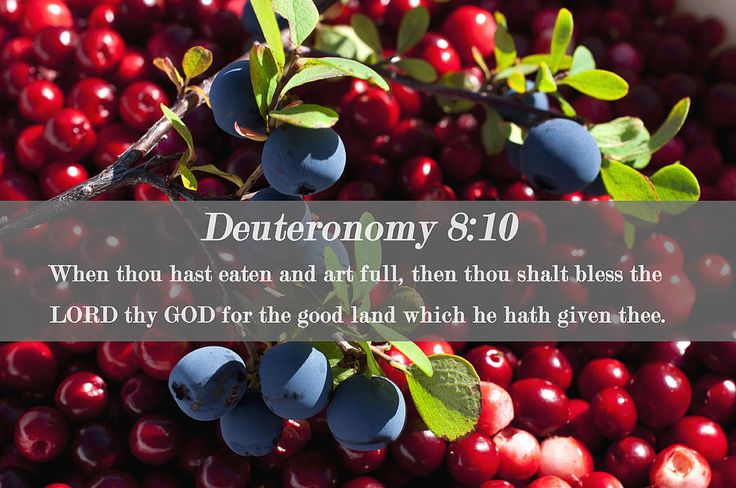
The Danger of Becoming Fat
Having plenty and enjoying the abundance that God provides for His people should always lead to blessing God and giving thanks to Him. The danger, as the LORD has pointed out, is that prosperity can lead one to turn to other gods (Deut. 31:20). The word used here for “prosperity” is the Hebrew word “דשן” – “dashen” which literally means “to grow or become fat.”
This word “דשן” – “dashen” is not negative in itself, in fact, it is generally used in a positive manner when accompanied with a proper perspective of God as we see in this example from the book of Proverbs:
An arrogant man stirs up strife,
But he who trusts in the LORD will prosper. – Proverbs 28:25
The one who trusts in the LORD receives the blessing of God and is said to “be made fat” or “prosper” – “דשן” – “dashen.” The one who is made to prosper must always remember the source of his or her prosperity.
The danger of becoming fat or prosperous is when we lose sight of the LORD and believe that we are the source of our prosperity or we look to someone else or something else and turn to them as our source. God calls these alternative sources other gods. Who are you trusting in for your source of prosperity? Who are you thanking for your home, your food, your wealth?
The Song of the LORD
As we begin to look at the song that Moses taught to the children of Israel we will see that one of the main themes of this song was to remind the children of Israel that their true source of life was the LORD Himself and no one else. It is easy to become proud and to trust in our own resources, to be drawn to someone of charismatic speech, or to admire someone of power in this world while forgetting the true source of life and blessing. The Song of the LORD is a powerful reminder to each one of us that God alone is our source for everything we need.
As Moses taught the children of Israel the song that would bear witness against them, he called heaven and earth to listen to these words (Deut. 32:1). This song would surpass the generation of Israelites that learned the song that day on the other side of the Jordan. This song would continually be a witness between the LORD of creation and the people of Israel.
The LORD is The Rock!
The beginning of this song contains a proclamation of who the LORD is. This proclamation presents the LORD in a unique manner which is consistent throughout the song:
For I proclaim the name of the LORD;
Ascribe greatness to our God!
The Rock! His work is perfect,
For all His ways are just;
A God of faithfulness and without injustice,
Righteous and upright is He. – Deut. 32:3-4
In this initial proclamation of the greatest, faithfulness, and justice of the LORD, He is proclaimed as “The Rock.”
Why is God called “The Rock?”
Throughout this song the word “rock” appears at least eight times (Deut. 32:4, 13, 15, 18, 30, 31, 37), with the majority of those eight appearances referring to the LORD. The word “rock” in Hebrew is “צור” – “tzor” and is often used in Scripture as a metaphor of God as a shelter and stronghold or a place of refuge. We see this illustrated in the book of Psalms:
The LORD is my rock and my fortress and my deliverer,
My God, my rock, in whom I take refuge;
My shield and the horn of my salvation, my stronghold. – Ps. 18:2
In this Psalm of David, there are actually two different Hebrew words for “rock.” The first appearance of “rock” uses the Hebrew word “סלע” – “selah” and the second appearance uses the word “צור” – “tzor.” Both Hebrew words mean “rock” and both are used to represent the LORD.
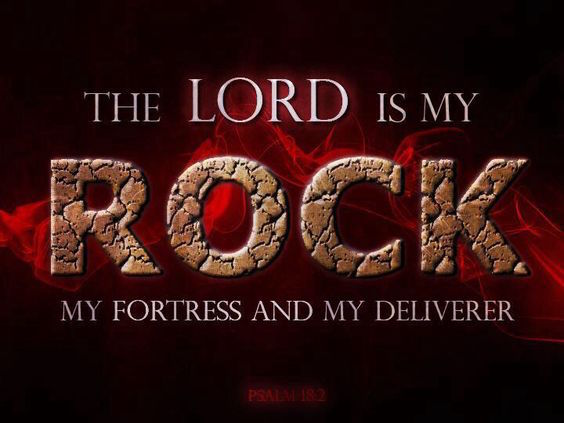
Provision from the Rock
In the second and third appearances of the word “rock” in The Song of the LORD, the LORD is portrayed as the One who guides and nourishes the nation of Israel:
The LORD alone guided him,
And there was no foreign god with him.
He made him ride on the high places of the earth,
And he ate the produce of the field;
And He made him suck honey from the rock,
And oil from the flinty rock, – Deut. 32:13
The two “rocks” spoken of here are the two different Hebrew words for rock: “סלע” – “selah” and “צור” – “tzor.” They are both used to express how the LORD Himself abundantly provides for Israel. The LORD is contrasted to a foreign god in these verses and both examples of the “rock” are pictured as a source of provision and nourishment.
The Rock as the Creator and Savior
As the “Song of the LORD” continues, the LORD Himself is again personified in as “The Rock” to illustrate how He is the ultimate source of life and salvation for the nation of Israel:
But Jeshurun grew fat and kicked—
You are grown fat, thick, and sleek—
Then he forsook God who made him,
And scorned the Rock of his salvation. – Deut. 32:15
Israel is called “Jeshurun” in this verse, which is a nickname for Israel. “Jeshurun” in Hebrew is “ישורון” – “Yeshurun” and probably means “the upright one.” This nickname is probably used here in a sarcastic manner as Israel, the supposedly “upright one,” is being depicted as one who has grown fat and has forsaken the God who is called “Righteous” and “upright” – “ישר” – “yashar” (Deut. 32:3-4).
Israel, Yeshurun, is described as rejecting “God who made him” and the “Rock of his salvation.” The phrase “Rock of his salvation” in Hebrew is “צור ישועתו” – “Tzor Yeshuato.” There is a beautiful picture in how these two phrases, “God who made him” and the “Rock of his salvation,” explain the nature of God in relation to His creation. These two phrases illustrate God as the Creator and God as the Savior. God was there at the beginning and He will be there at the end.
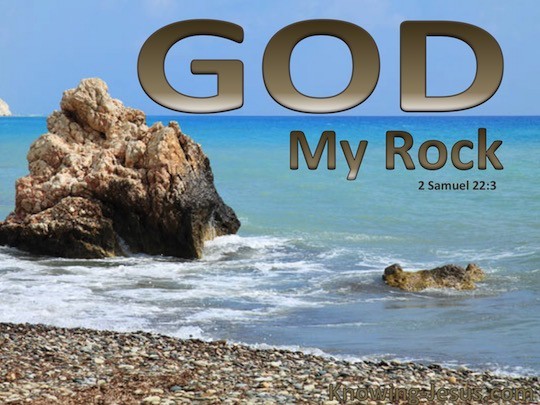
The Rock as Father God
This song is generally not prophetic or pointing to exact situations but is painting a picture of who God is in relation to the nation of Israel. It was not a matter of if Israel would forsake God but when. In this song God was illustrating that Israel as a nation would totally reject God for the false gods of this world:
They made Him jealous with strange gods;
With abominations they provoked Him to anger.
They sacrificed to demons who were not God,
To gods whom they have not known,
New gods who came lately,
Whom your fathers did not dread.
You neglected the Rock who begot you,
And forgot the God who gave you birth. – Deut. 32:16-18
The LORD Himself is the Creator and more than that, the LORD Himself formed Israel as a nation and brought them out of Egypt and into the Promised Land:
Do you thus repay the LORD,
O foolish and unwise people?
Is not He your Father who has bought you?
He has made you and established you. – Deut. 32:6
By forgetting and rejecting God they were rejecting Him as their Father: “the Rock who begot you.”
The False Rock
All throughout this song, the LORD is illustrating how there are only two choices for the nation of Israel, to trust in the LORD as their Rock or to trust in false gods as their rock:
And He will say, ‘Where are their gods,
The rock in which they sought refuge? – Deut. 32:37
By asking this question the LORD was revealing the inability of false gods to provide protection for Israel. The false gods do not create anything and they cannot sustain life. The false gods are empty rocks with no future.
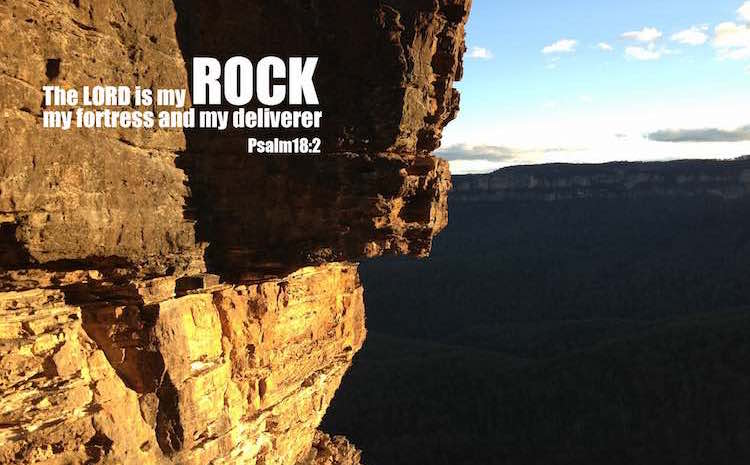
The True Rock
In contrast to the false gods that the children of Israel would trust in, the LORD declared towards the end of the song that He alone is the True Rock in whom they were able to trust:
See now that I, I am He,
And there is no god besides Me;
It is I who put to death and give life.
I have wounded and it is I who heal,
And there is no one who can deliver from My hand. – Deut. 32:39
The LORD alone is God. He alone is the author of life. He alone heals and delivers and there is no one more powerful than Him. The LORD Himself is the Creator, Sustainer, and Savior. He alone is the True Rock.
Revelation of the Rock
The concept of the LORD as the Rock was not something new that the LORD instructed Moses to teach the children of Israel. The LORD had revealed Himself to the children of Israel as the Rock when they had first come out of Egypt:
Then the LORD said to Moses, “Pass before the people and take with you some of the elders of Israel; and take in your hand your staff with which you struck the Nile, and go. Behold, I will stand before you there on the rock at Horeb; and you shall strike the rock, and water will come out of it, that the people may drink.” – Ex. 17:6
The people were without water in the desert and they thought that they were going to die of thirst. The LORD instructed Moses what to do and told him that He would stand on the rock as Moses struck it and water would gush out.
From the very beginning of the establishing of the nation of Israel, the LORD was revealed to the people as their source of life and salvation as the LORD Himself stood on the rock at Horeb. Moses was God’s tool to strike the rock but it was the LORD Himself who provided water from the rock. The LORD revealed Himself as their Rock from the very beginning.
Messiah as the Rock
The LORD desires His people to believe in Him and to know Him as the true source of life and salvation. The LORD revealed Himself to the children of Israel as the Rock, the Creator and Savior, and we read in the New Testament that this Rock is the Messiah:
For I do not want you to be unaware, brethren, that our fathers were all under the cloud and all passed through the sea; and all were baptized into Moses in the cloud and in the sea; and all ate the same spiritual food; and all drank the same spiritual drink, for they were drinking from a spiritual rock which followed them; and the rock was the Messiah. Nevertheless, with most of them God was not well-pleased; for they were laid low in the wilderness. – 1 Cor. 10:1-5
Messiah is the Rock. Messiah is the revelation of God to mankind and the true source of life and salvation.
The LORD revealed Himself to the children of Israel as the Rock and they were given the choice to trust in Him and look to Him as their Creator and Savior or to reject Him and seek after “false rocks.” In the same manner, Yeshua the Messiah is revealed to us as the Rock and we are all invited to trust in Him and look to Him for life and salvation.
We read in the last sentence from the New Testament quote above that the LORD was not “well-pleased” with the majority of the children of Israel. They failed to look to the LORD as their Rock and to trust in Him. The Song of the LORD is a reminder to each one of us that the LORD Himself is our source of life and salvation and no one else. Yeshua is our Rock; our Creator, our Savior, our Refuge, and our Healer. Trust in the Rock!
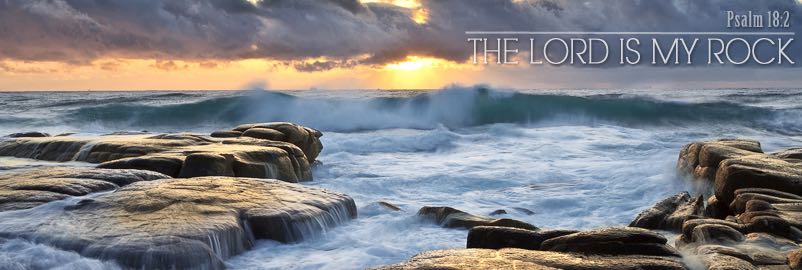
Shabbat Shalom!
If you enjoyed reading this article, share it today with friends! We also invite you to sign up for our weekly Torah Portion commentary on the sidebar to the right.
Help keep our weekly commentaries free and available to all. Click here to donate today:
Torah Portion: Deut. 32
Haftara: 2 Samuel 22:1-51
Return to Torah Portion Homepage
Copyright Jewels of Judaism. All rights reserved 2016



Can someone tell me if JewelsofJudaism is a messianic group?
Dear Reuben,
Yes, Jewels of Judaism is Messianic.
Dear Daniel, I’m interested to know what Frank thinks of the response that I posted to his comment about the LORD not sharing his glory with anyone. Would it be possible for you to to email that posting to him or the link to the posting, so that he may respond.
Blessed be the Name of the LORD, Shem HaShem, to Whom is due all glory and majesty and worship!
Sal😀
Dear Frank and Daniel,
Indeed the LORD will not share His glory with another, as stated in Isaiah 42:8.
In Isaiah 6:1 and 57:15, the LORD’s glory is described as “lofty,” “exalted,” and “high.”
Isaiah 52:13, describes the suffering Servant as “high and lifted up and greatly exalted,” descriptions that are reserved for the glory of the LORD alone, which connotes that the suffering Servant must be the LORD Himself!
In Jeremiah 23:5-6, “the righteous Branch,” which is a reference to Maschiach, is also called “The Lord our Righteousness (Jehovah Tzidkenu),” which denotes that the Branch is also Jehovah Himself. Moreover, Isaiah 52:13 also states that the suffering Servant will prosper (act wisely, deal prudently), just as the righteous Branch shall act wisely. And Isaiah 53:11 calls the suffering Servant “the Righteous One,” “who will justify the many,” which only Jehovah can do.
In conclusion, the suffering Servant is the LORD Himself, Yeshua HaMaschiach, with Whom Jehovah shares His glory, since they, along with Ruach HaKodesh, are one Echad in three persons, blessed Tri-Unity! Devarim 6:4 Shema Yisroel Adonoi Eloheinu Adonoi Echad. By extension, all scriptural references to The Rock, the Almighty, must also refer to all three persons of the Tri-Unity.
John 1:14 And the Word became flesh, and dwelt (tabernacled) among us, and we saw His glory, glory as of the only begotten from the Father, full of grace and truth.
May Ruach HaKodesh reveal the fullness of Jehovah’s glory in Yeshua HaMaschiach to all who earnestly seek Him!
By the way, all scripture citations are from the New American Standard Bible, except for Deuteronomy 6:4, which I have cited from the Orthodox Jewish Bible. Furthermore, I have extensively paraphrased from Meno Kalisher’s outstanding book, Jesus in the Hebrew Scriptures, The Identity Of The Messiah.
Sukkot Sameach!
Isaiah 42:8 “I am the Lord, that is My name; I will not give My glory to another, Nor My praise to graven images.
Isaiah 6:1 In the year of King Uzziah’s death I saw the Lord sitting on a throne, lofty and exalted, with the train of His robe filling the temple.
Isaiah 57:15 For thus says the high and exalted One Who lives forever, whose name is Holy, “I dwell on a high and holy place, And also with the contrite and lowly of spirit In order to revive the spirit of the lowly And to revive the heart of the contrite.
Jeremiah 23:5-6 “Behold, the days are coming,” declares the Lord, “When I will raise up for David a righteous Branch; And He will reign as king and act wisely And do justice and righteousness in the land. “In His days Judah will be saved, And Israel will dwell securely; And this is His name by which He will be called, ‘The Lord our righteousness.’
Isaiah 52:13 Behold, My servant will prosper (act wisely, deal prudently), He will be high and lifted up and greatly exalted.
Isaiah 53:11 As a result of the anguish of His soul, He will see it and be satisfied; By His knowledge the Righteous One, My Servant, will justify the many, As He will bear their iniquities.
I know you all believe that messiah is the rock. Why? For over 3500 years the jewish people, and if you our jewish, the almighty is the rock and it explains very well he doesnt share his glory. I know messianic have this idea about this because in the NT it says it. How do you get the idea that the messiah is the rock? Please help me out, the rock of our salvation again its only the Almighty. if you can show me in the Torah or the Hebrew scriptures where you get this, I will read it.
Dear Frank,
Thank you for your comments. Most of my articles show the connection of the revelation of the Jewish Messiah from the Torah. One article that I would recommend for you is God’s Sacrifice which you can access at this link: http://jewelsofjudaism.com/sacrifice-of-god/
The Messiah is clearly Yeshua as declared from the Jewish Scriptures!
Let me know if you would like to discuss this further.
Blessings,
Daniel